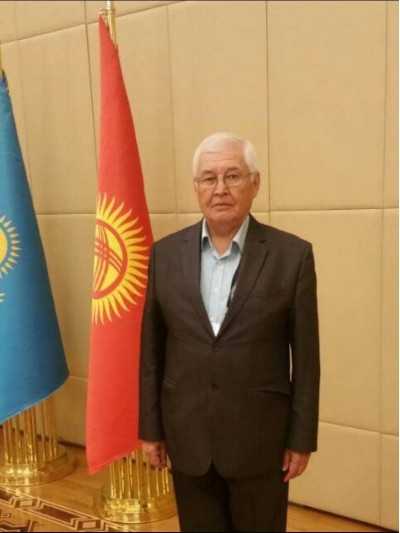
T. M. Shabdanaliev, Chairman, Association of carriers and logistics of the Kyrgyz Republic.
On behalf of the heads of transport and logistics enterprises, I would like to express my appreciation to the World Bank group, the government of the Kyrgyz Republic and the Kyrgyz State Technical University named after I. Razzakov for supporting and implementing the project "Establishment of the National Public Procurement and Logistics Observatory". The public procurement system in our country has passed the stage of formation and is developing in accordance with the current trends. There are a lot of problems and drawbacks in this area, and the established center will help to solve the main problem of the public procurement system – to graduate competent specialists in the management of procurement of goods, works and services.
As a Chairman of the Public Supervisory Board under the Ministry of Economy of the Kyrgyz Republic until 2015, my colleagues and I have raised an issue about tender’s quality for several times. We have studied the tender’s procedure, transparency of results, and introduction of a protest mechanism. However, after 2015, the policy towards the activities of the Public Supervisory Board has changed and the results of their work have become less effective. Therefore, this center could establish cooperation with the Supervisory Boards and provide them with information, analytical opinions and research results to strengthen civil society control in the field of procurement.
In autumn, 2017, I wanted to provide practical support to my brother from Kochkor village, Naryn region and drew up documents to participate in the procurement of meat for kindergartens and schools in Bishkek. We applied all the necessary documents and provided additional information about the advantages of our shop – industrial slaughter of animals in compliance with technology and temperature conditions, veterinary standards, sanitation and hygiene of employees. The consignment of meat was accompanied by a certificate of quality confirmation, a veterinary certificate with a driver's health record and a permit to transport meat by car. Also, we were providing an invoice with VAT to the buyer, by that we were promoting to pay taxes by the buyer and government. The tender Commission, after opening the envelopes and familiarizing the participants, read out the Protocol, where they selected the supplier who offered the lowest price.
The Commission did not consider other delivery criteria. They did not discuss the availability of a production base, fattened livestock for systematic slaughter and meat supply, or the technologies used for slaughtering and butchering. For this purpose, our company invited a slaughterer technologist from the USA, who trained the USA and France method to our 12 employees under the "farmer - to-farmer" program. At the selection Committee meeting, there was no word about the documents confirming the quality, timing, delivery conditions and suitability of meat for cooking for children in kindergartens and schools. Suppliers were resellers - speculators who did not have their own shop and livestock for slaughter. After the tender, my brother and I talked to the Chairman of the Commission, he admitted that the main criterion for selecting suppliers was the price. We assumed that when conducting tenders, effective selection criteria are not taken into account, and there are corruption risks on the part of purchasing organizations. In addition, the contemporary history of Kyrgyzstan shows that there are a lot of dishonest officials in higher bodies of state authority who pass regulations with corrupt conditions to use it for personal gain in the future.